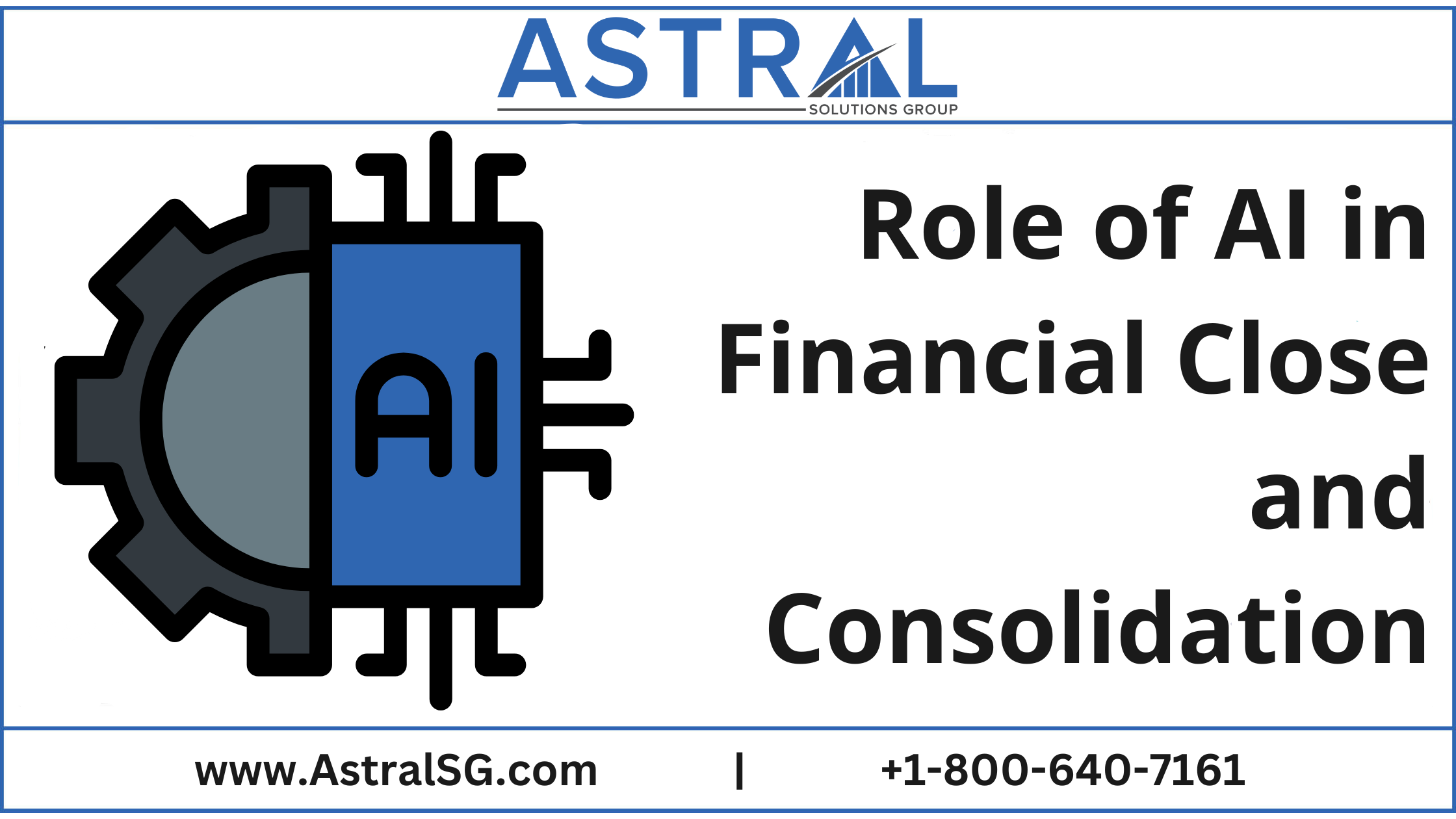
The Role of AI in Financial Close and Consolidation
In today’s fast-paced business environment, financial close and consolidation processes are crucial for ensuring accurate financial reporting and compliance. Traditionally, these tasks have been manual, time-consuming, and prone to errors. However, with the advancement of **Artificial Intelligence (AI)**, companies are experiencing a significant transformation in managing financial close and consolidation.
Let’s explore how AI is revolutionizing following critical financial processes, providing efficiency, accuracy, and strategic insights for businesses.
-
Streamlining the Financial Close Process
One of the major challenges in the financial close process is the sheer amount of data that needs to be collected, verified, and reconciled. AI-driven tools excel at automating repetitive tasks, such as data entry and reconciliation, reducing human error and speeding up the close process.
AI can automatically:
• Match transactions and identify discrepancies.
• Process and validate invoices.
• Reconcile accounts in real-time.By handling these tasks, AI enables finance teams to focus on more value-added activities, such as analysis and decision-making, rather than getting bogged down in administrative work.
-
Enhancing Data Accuracy and Compliance
Accuracy is paramount in financial close and consolidation. Errors or inconsistencies can lead to financial restatements, non-compliance, and regulatory penalties. AI-powered software can detect anomalies in financial data far more efficiently than traditional methods. Machine learning algorithms learn from historical data patterns to spot inconsistencies and flag potential issues for further investigation.
This real-time anomaly detection not only reduces the risk of costly mistakes but also helps ensure compliance with regulatory requirements like IFRS and GAAP, which require precise and timely reporting.
-
Automating Financial Consolidation
Financial consolidation involves aggregating data from multiple entities, often across different currencies, regulations, and systems. AI can streamline this complex process by automating intercompany eliminations, currency translations, and adjustments.
AI can:
• Aggregate and standardize data from various sources.
• Automate consolidation entries and journal adjustments.
• Ensure accuracy in multi-currency transactions.By automating these steps, AI helps companies produce consolidated financial statements faster and with greater accuracy, which is particularly valuable for global organizations.
-
Improving Financial Forecasting and Planning
AI doesn’t just help in closing the books—it can also play a pivotal role in financial forecasting and planning. By analyzing historical data and trends, AI algorithms can provide more accurate forecasts, enabling finance teams to make data-driven decisions.
AI enhances forecasting by:
• Predicting revenue and expenses based on historical patterns.
• Identifying trends and outliers that may impact financial performance.
• Suggesting optimal allocation of resources based on predictive analytics.These insights help businesses plan more effectively, adjust to market conditions, and maintain a competitive edge.
-
Reducing Close Cycle Time
One of the key benefits of AI in financial close and consolidation is its ability to reduce the close cycle time. By automating repetitive tasks and providing real-time data validation, AI allows businesses to close their books faster and with fewer errors.
A faster close cycle means finance teams have more time to focus on strategic tasks, such as analyzing financial performance and preparing for the future, rather than spending weeks on manual reconciliation and data consolidation.
-
Enabling Continuous Monitoring and Insights
AI-driven systems can monitor financial data continuously, providing insights into key performance indicators (KPIs) and financial health in real-time. This capability allows organizations to make proactive decisions rather than waiting until the month-end or quarter-end close to analyze financial data.
With AI, CFOs and finance teams can:
• Access current financial data.
• Track performance against financial goals.
• Quickly respond to any emerging risks or opportunities.This level of insight is critical for businesses operating in dynamic industries, where agility and informed decision-making can make all the difference.
-
The Future of AI in Finance
As AI technology continues to evolve, its role in financial close and consolidation will only grow. Emerging technologies like natural language processing (NLP) and robotic process automation (RPA) will further enhance automation capabilities, enabling companies to achieve fully automated financial close processes soon.
AI will also likely expand into other areas of finance, such as audit, tax, and treasury management, offering even more opportunities for efficiency and innovation.
Conclusion:
AI is reshaping the landscape of financial close and consolidation by offering improved accuracy, reduced cycle times, and actionable insights. Companies that embrace AI-driven solutions will not only streamline their financial processes but also gain a competitive edge through enhanced strategic decision-making.
By leveraging AI, businesses can free up their finance teams to focus on high-level tasks, ensuring they remain agile, compliant, and future-ready in an ever-changing financial environment.
Ready to transform your financial close and consolidation with AI? Contact us today to learn more about how AI solutions can streamline your processes and improve your financial performance.




